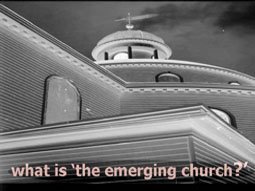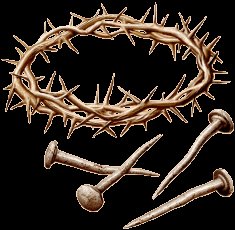We’re in the final stages of permitting and funding considerations prior to groundbreaking on a
new sanctuary for our little flock in Seattle. I say little because we’re 800-1000 attenders on any given Sunday in a city of maybe one million people.
As we get to this critical stage, I’ve been thinking and praying about church buildings (a subject about which I’m not normally given to think and pray). Here are some random thought about church buildings:
Thought #1:
Church buildings have the effect of making the local body of Christ visible. This, I would argue, is a good thing (unless our calling to also scatter into world missionally is completely ignored). The church scattered has value, but so does the church gathered. It’s of very little value to talk about the ‘universal church’ and the ‘mystical body of Christ’ if that universalism and mysticism isn’t eventually expressed in
visible locality. Just as a spirit and soul without a body renders a person unknowable, so is ‘church’ unknowable if she only exists in the universal and mystical sense, but not in the gathered community. For this reason, church buildings have, wherever the church has taken root, been a localizing force, a gathering place to make the invisible visible.
Thought #2:
More ministry space is a good thing. I completely understand the line of thinking which declares that the church’s job is to be out in the world, serving the world and functioning as agents of hope, healing and restoration, in many contexts and relationships. But this calling doesn’t negate the possibility and reality of the church community gathering together in space to offer services to the world (such as shelter, day-care, practical teaching in job skills, a gather place for community building, a safe place for youth to encounter each other and face the weighty issues of life together, a place for university students to ask questions, wrestle with matters of faith, and know they will be honored and loved, a place for
the arts to find support and expression, and so much more.) All of these matters require space somewhere. If God is giving us opportunities to do these things, and blessing these kinds of endeavors to the point where our walls are crowding people out, then adding space makes sense.
Thought #3:
Churches that are growing aren’t inherently evil. Our global economic system, it seems, is premised on the assumptions that continual growth in the GDP is necessary in order to sustain the machinery of civilization. Critics point out flaws in the system and the assumptions of the system, positing that such a model is unsustainable and unjust. You can agree or disagree. But please don’t connect the dots between the capitalist model of growth and church growth. Churches are, over time,
supposed to grow (or so Jesus and the testimony of the early church implied). We want lives to be changed and people to be forgiven, healed, equipped, and mobilized to take their gifts into the world, serving and giving generously in Jesus name. May the tribe of those who do so increase greatly… until He returns! Oh but be careful – if that tribe does increase, they’ll want to be with others who have met, or are seeking Christ, and they’ll need to sit somewhere, and be taught somewhere, and celebrate the death and resurrection of Christ somewhere. The most vocal critics of church buildings still continue to gather in them. The exception are those who meet in homes, but most who do are forced to either close their doors to newcomers, or change their theology and meet in space bigger than a house.
Thought #4:
Space Matters. Here we are, saying that the Platonic division between spirit and matter is heresy, and celebrating art and expressions of beauty. Doesn't this same line of thinking lead us to the vital matter of giving care to the place where the visible church convenes? Our gathering place says a great deal about whether we really believe that beauty and care for creation is part of our calling. Proper care for the architecture and space of the church buildings, interior and exterior, is a critical piece of our testimony, for it is the piece that everyone sees, whether they know Christ or not. What does our facility say about God's character, His beauty, His holiness, His love of creativity, and His love for us? Every space makes a statement - invites or repels; offends or blesses; celebrates beauty or diminishes it. You can't ignore this reality (which is why I almost became an architect).
Thought #5:
Church buildings are dangerous. They are dangerous because they become confused with real life the same way body displaces spirit as the source of meaning. Such displacement ends up masking our internal bankruptcies, under the guise of external glories. There's a line in a Switchfoot sing about the women who would rather 'fix her make-up, than fix what's going on.' And so it can be, and has been throughout history - programs and facilities displace relationships, truth telling, and the power of sacrament, forgiving, celebrating, serving, and simply being present 'in Jesus name'. When those things get displaced by externals, we've missed the point.
There are more thoughts about how buildings themselves testify of something important in the same way that your body and clothing testifies about, but isn't really, you. But I'm out of time for now. I welcome your thoughts!
cheers










